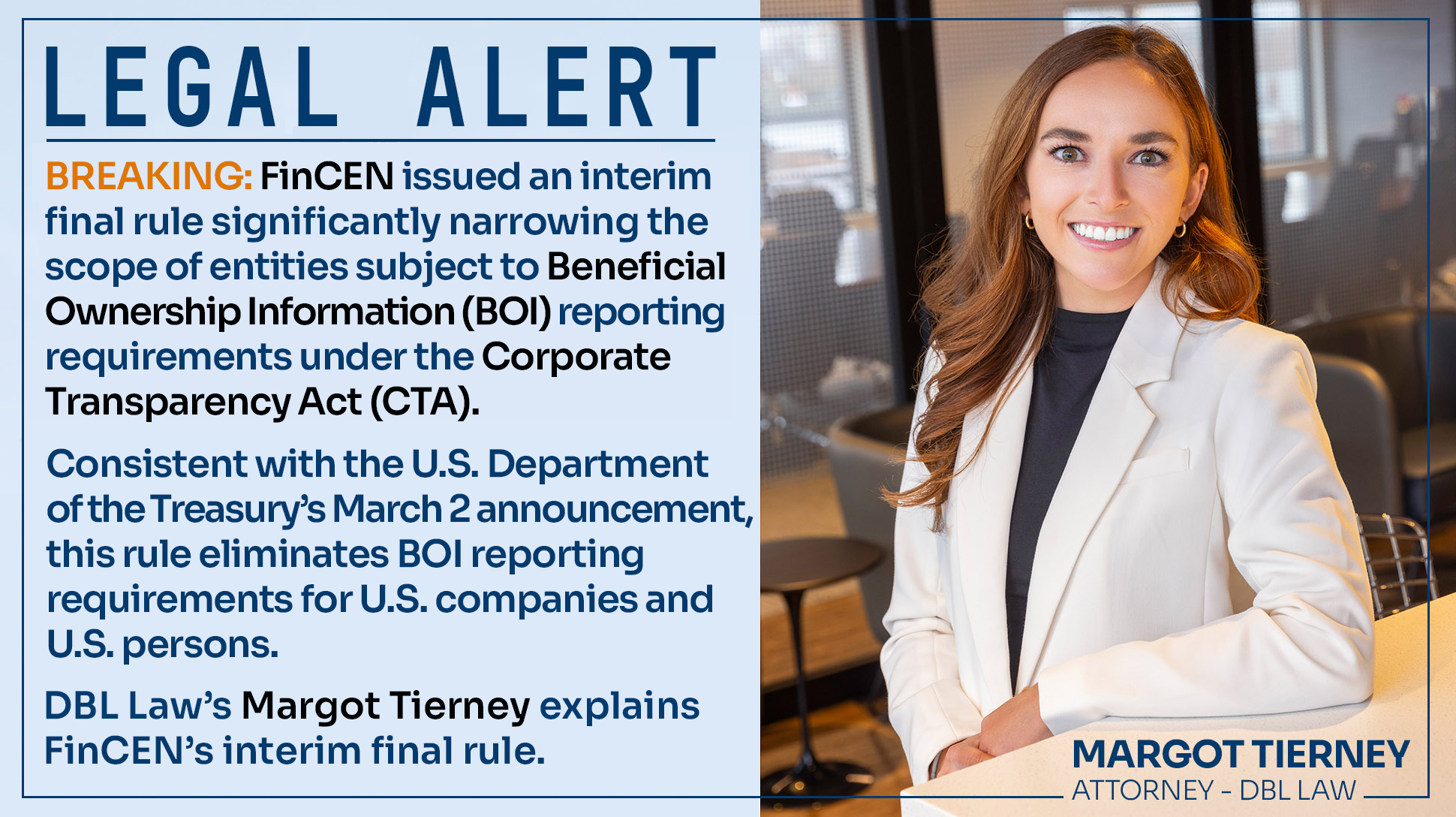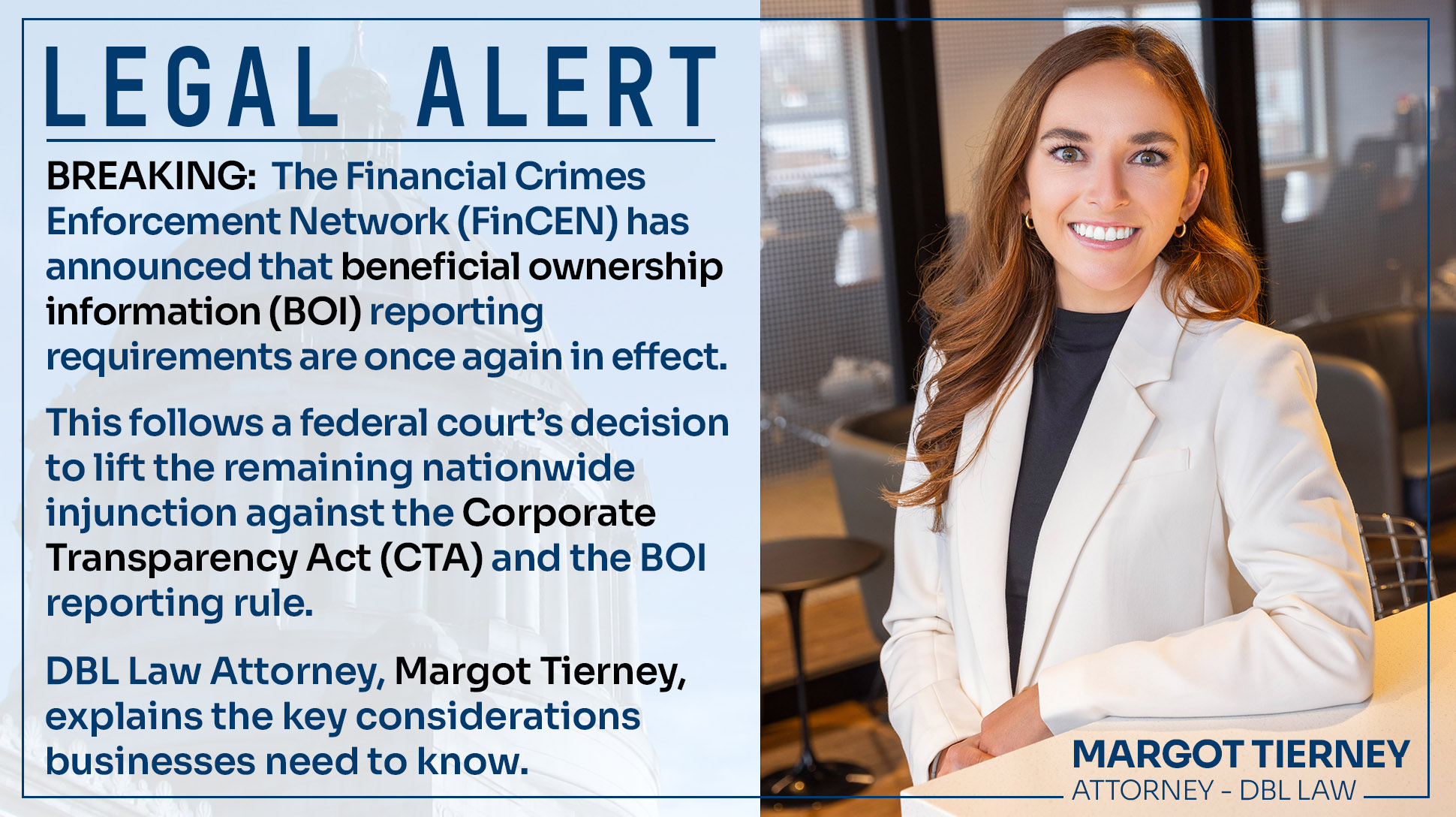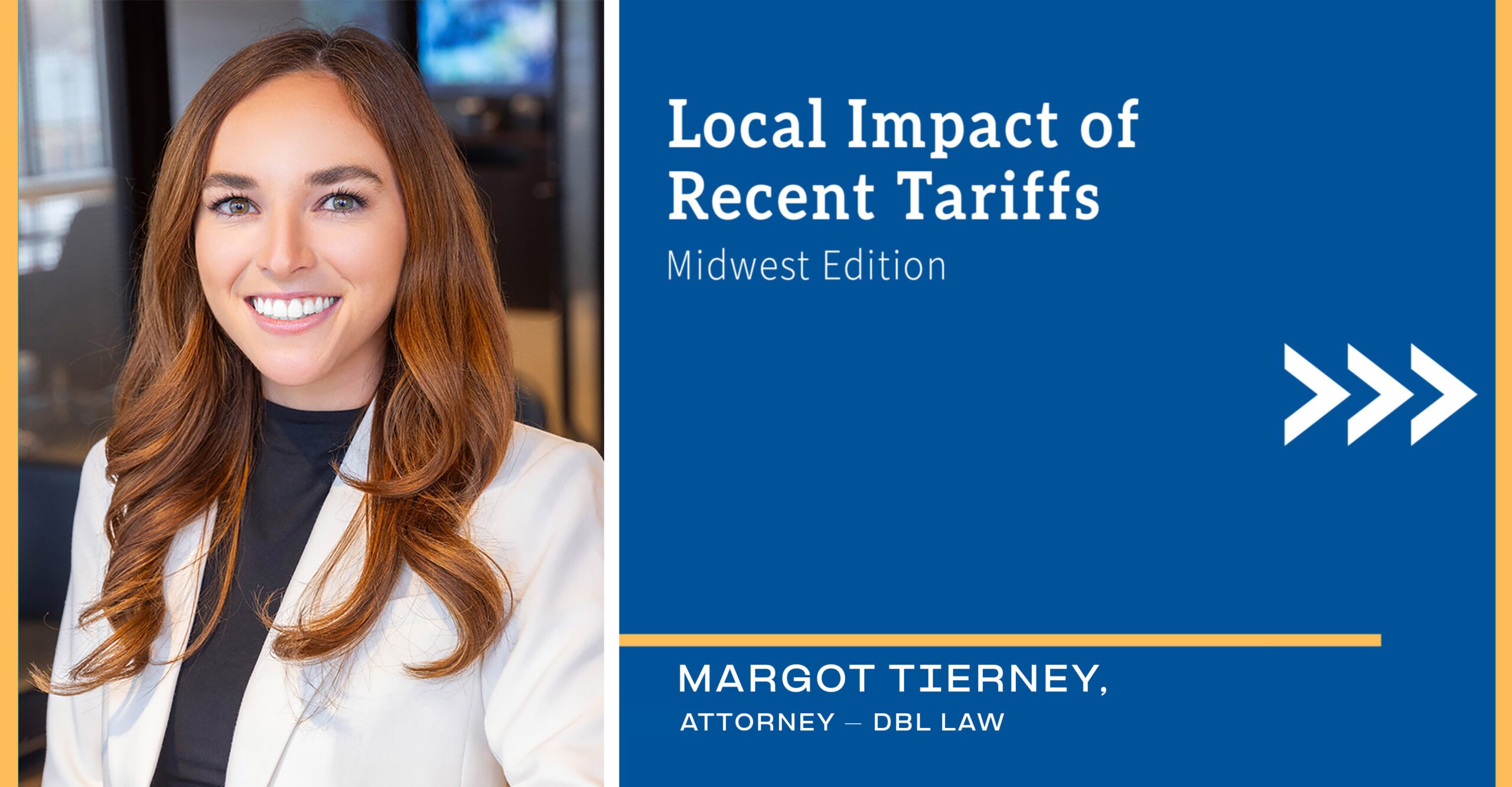Background
Beginning January 1, 2024, most business entities will be required to disclose once private business information regarding the entity’s “beneficial owners” to the Financial Crimes Enforcement Network (“FinCEN”), a bureau of the U.S. Department of the Treasury, through the filing of a Beneficial Ownership Information Report (“BOI”). This new reporting requirement is a result of the Corporate Transparency Act (“CTA”).
The CTA was passed in early 2021 in response to the rise of shell businesses serving as fronts through which illegal gains are laundered in the United States. Because of the current lack of required disclosures regarding owners and operators of American companies, these shell companies pose a heightened threat to national security and to the U.S. financial system. Criminals can manipulate the legal structures of businesses to launder money and commit other crimes, including serious tax fraud. By requiring businesses to identify their beneficial owners in BOIs, the federal government can pinpoint illegal activity passing through seemingly legitimate businesses.
However, this newly imposed reporting requirement comes at a cost. Many speculate that this new reporting requirement will deter “angel investors” from investing in new business ventures because these anonymous investors may not want their investments disclosed to the government. The requirement burdens small businesses while simultaneously exempting large corporations and investment companies from making disclosures. Additionally, the maximum penalty for not properly complying with these disclosures is steep – a penalty of up to $10,000 and two years of imprisonment.
Reporting Companies and Exemptions
Despite the burden this new requirement will impose on small businesses, most small businesses will be required to file a BOI. Companies required to comply with CTA reporting, “reporting companies,” include:
- any domestic corporation, limited liability company, or other entity (such as limited liability partnerships, limited liability limited partnerships, business trusts, and most limited partnerships) that is created by the filing of a document with the secretary of state or a similar office; and
- any foreign corporation, limited liability company, or a similar entity that is formed under the laws of a foreign country and registered to do business in any state or tribunal by filing a document with the secretary of state or a similar office.
FinCEN has created a list of exemptions from the reporting requirement, and most small businesses will not fit an exemption. These exemptions include: (1) governmental authorities, (2) banks, (3) credit unions, (4) money services businesses, (5) broker-dealers, (6) securities reporting issuers, (7) entities registered under the Securities Exchange Act; (8) investment companies and advisers; (9) venture capital fund advisers; (10) insurance companies; (11) entities registered under the Commodity Exchange Act; (12) tax-exempt entities; and (13) large operating companies and certain subsidiaries.1 If an entity is exempt, then it is not required to take any action under the CTA.
Beneficial Owners
Reporting companies must provide the following information to FinCEN regarding each beneficial owner:
- full legal name;
- date of birth;
- current residential or business street address; and
- identifying government number (e.g., passport number or driver license number) or a FinCEN identifier.2
The entity’s beneficial owners are individuals or entities who (i) exercise substantial control over the entity (e.g., a corporate officer); or (ii) own or control 25% or more of the ownership interests in the entity. Information about beneficial owners disclosed to FinCEN will remain confidential and will not be disclosed to the public. However, FinCEN may disclose this information only upon receiving a request from (i) federal or state law enforcement; (ii) a financial institution (with the consent of the reporting company); and (iii) certain government regulatory agencies.
Conclusion
In constructing this new reporting regulation, FinCEN has considered the benefits and safeguards that the new reporting requirements will provide as well as the inconveniences it creates for small businesses. After implementation of this regulation in 2024, FinCEN will continuously evaluate the effectiveness of BOIs and will make appropriate adjustments to the reporting requirements. Therefore, it is crucial that reporting companies remain up to date on what is required of them under the CTA.





